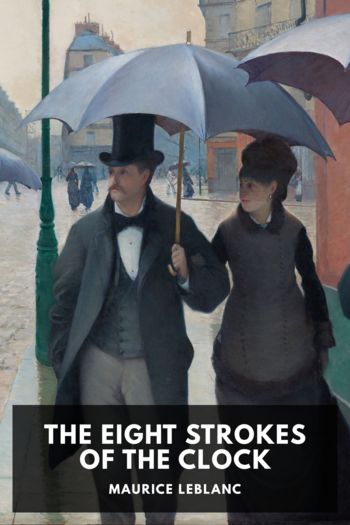The Inspector Walter Darriteau Murder Mysteries - Books 1-4 by David Carter (microsoft ebook reader TXT) 📗

- Author: David Carter
Book online «The Inspector Walter Darriteau Murder Mysteries - Books 1-4 by David Carter (microsoft ebook reader TXT) 📗». Author David Carter
‘Oh, geez.’
‘You’ve a nutter on your hands.’
‘We know that, doesn’t make him any easier to find.’
‘I’ll wire you over the PM report as soon as I have it.’
‘Thanks, Dai. I owe you one.
‘Two, I think.’
‘Yeah, let’s hope there’s no more, eh?’
‘Be in touch.’
Chapter Thirty-One
Armitage had been at the orphanage five years. Things had improved. The food was better and there was more of it. The staff improved through better training and adopting a more enlightened attitude, and every boy incarcerated there breathed easier when the predatory Mr Gilligan was disciplined and removed. But as there was no concrete evidence against him, he escaped prosecution and kept his pension. The boys cared little about that; they were too busy celebrating his demise.
To everyone’s relief the non-normals were moved too, taken to a brand new redbrick facility at Willaston, where only four boys would share a room, where hot individual showers were always on tap, and where any hint of bullying and intimidation from the so-called normals was eradicated. Some of the non-normals knew that some normals were in the wrong classification, and vice versa. But those non-normals who had been evacuated were now delighted to be wrongly classified and away.
Those remaining at Saint Edmond’s slept better. The crazy night-time shrieking upstairs soon became a thing of memory and folklore. The new jerks were told horrific stories of how it used to be, and how lucky they were, and the confused new arrivals didn’t know what to believe.
In all that time, no one had ever come for Dennis Swallow.
They had looked at him right enough, considered him, those potential foster parents, countless times, like people inspecting dogs on dog death row. But always he would be rejected because of his darting untrustworthy eyes, so reported back more than one middle class Wirral family, or maybe it was his rat-like looks. Dennis was sixteen and on the brink of leaving school, searching for employment, and finding somewhere to live outside the system.
Dennis had never lived anywhere else other than at Saint Edmond’s. He didn’t know what a family home was like. He didn’t know anything better. The idea of him going out into the big wide world alone was terrifying, yet exciting too. Dennis cherished his dreams, holding them close to his chest, like all the rest.
Armitage was still stuck in Saint Edmond’s too.
Even more potential fosterers had considered him, yet there was something about him that put people off. His limbs appeared to develop at different rates, like a yearling colt where one end grows faster than the other, and the creature never looks quite right. He didn’t look natural, the finished article, and this weird appearance resulted in those same people staring at him, and smiling down, and grimacing, shaking their heads, and muttering, ‘Maybe not,’ and often in Armitage’s presence.
All the kids were relieved when they changed the viewing system. They didn’t do that anymore. Reject them on the spot, in full view of the rejected. Thank God for that. It was just a wonder it took them so long to figure out that constant and obvious rejection could lead to more problems, and more of the same.
WHEN THE VICAR OF SAINT Jude’s, the local parish church, first heard Armitage sing at eleven, he was transfixed. It was a case of love at first sound. The vicar fell head over heels. There was nothing he would not do for Armitage, so long as Armitage felt the same way.
Armitage did not.
Not that the Reverend Christian de Wyk would be put off by that, and nor did he block or hinder Armitage’s singing. He didn’t, and he couldn’t, because he adored it so, the magical treble voice that soared through Saint Jude’s church, filling the place with joy. Despite the rebuffs he would keep Armitage in the choir because he, Christian, was ambitious. The Saint Jude’s choir had been widely talked about and admired once in the past, but that was ten years back, long before Christian de Wyk took up his post.
Christian intended to return it to how it once was, and backed by the Bishop of Chester, who was a friend of his; he was determined to achieve it.
Armitage remained on the front row of the choir.
He didn’t know what the vicar wanted; but he knew he didn’t. It came from his deepest instincts that this God fearing man the parishioners so adored was dangerous. Army shared his thoughts with Dennis, who couldn’t sing for coal-scuttles. Army told him all about it. Of his doubts and fears, and the creeping feeling of cold discomfort that came over him whenever the vicar called him to his private rooms, and how he couldn’t wait to get away, and the numbness he felt when Christian would stand close behind him at choir practice, his hands alive on Armitage’s slight shoulders, as Christian’s raucous baritone echoed into Army’s ears, through the hearty never-ending renditions of All People That On Earth Do Dwell and Onward Christian Soldiers, a favourite of the vicar’s.
Dennis explained in graphic detail, and would never forget the look of horror and disbelief on his friend’s boyish face, as the penny dropped.
‘You can’t be serious!’
Dennis nodded his head, unable to keep the likeable smirk from his rodential face.
Armitage had avoided being alone with the vicar. After that enlightenment he refused to attend the vicar’s private rooms under any circumstances, risking any punishment or banishment.
A year later Christian de Wyk disappeared.
Amongst the adults, wicked rumours circulated, not that any of those filtered through the thick walls of Saint Edmond’s. Armitage was delighted he was gone, as were all the choirboys, especially the prettier ones.
He was replaced by the Reverend Blair McGowan, who, as his name suggested, was very Scottish and mighty proud of it. He was happily married with four mini McGowans, three boys and all would sing in the choir, two would later become ordained, and one shy girl, Machara, who didn’t sing a note, but stood





Comments (0)